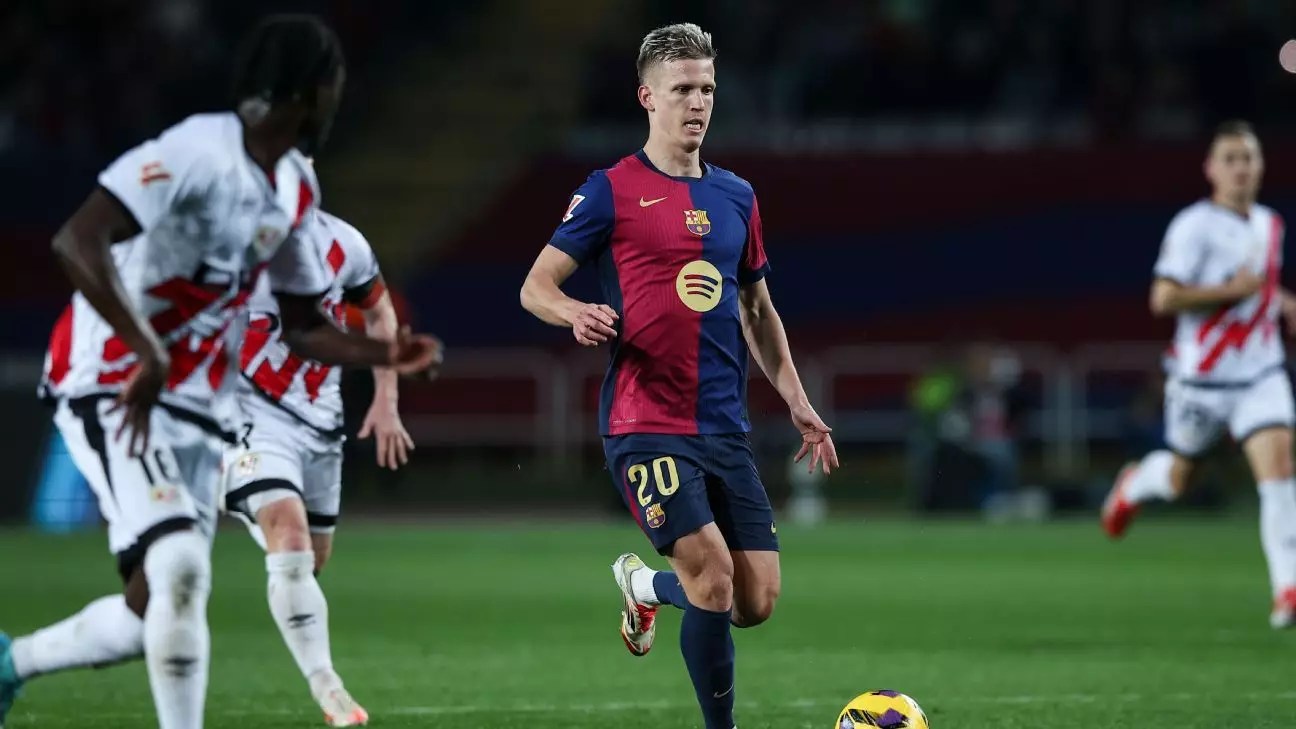The ongoing tension between FC Barcelona and LaLiga has escalated following recent rulings by Spain’s sports authority. This conflict primarily revolves around the registration of players Dani Olmo and Pau Víctor, who were granted provisional status allowing them to continue with Barcelona despite missing the end-of-year deadline for compliance with financial regulations. The Spanish sports authority’s intervention has raised eyebrows, with LaLiga issuing an official appeal against this decision. Such legal tussles showcase more than just compliance issues; they bring to light the complex web of politics and rivalries that shape professional football in Spain.
Barcelona’s Financial Dilemmas
Barcelona’s financial situation has been precarious for several years, marked by increasing debt and challenges in managing player salaries. The recent controversy highlights how these financial constraints can create loopholes or exceptions that clubs may exploit for competitive advantage. By securing temporary registration for Olmo and Víctor, Barcelona appears to be maneuvering within the constraints imposed by LaLiga, thus igniting questions about the club’s long-term strategies and financial ethics. How can a club of Barcelona’s stature justify these ambiguities without risking the integrity of its operations and reputation?
The Ethics of Financial Transparency
The heart of this dispute also lies in the ethics of financial transparency. Barcelona accused LaLiga of inappropriate behavior, alleging breaches of confidentiality regarding the sale of VIP seats at the Spotify Camp Nou. The conflict dramatically underscores a crucial point: trust is paramount in sports governance. When one party questions another’s financial dealings, it undermines the league’s integrity as a whole. LaLiga’s scrutiny of Barcelona’s financial disclosures reveals the simmering distrust that exists, an atmosphere that could have damaging repercussions not only for the club but also for LaLiga’s authority in managing the overall football ecosystem.
Consequences of LaLiga’s Appeal
The appeal by LaLiga raises questions about the future implications for both parties involved. There is no clear timeline for when this appeal will be reviewed, leading to uncertainty that can destabilize team performance and morale. Delays in the decision-making process often leave clubs and players stranded in bureaucratic limbo, hampering their ability to plan ahead. For Barcelona, every moment counts as they try to solidify their lineup for upcoming matches. The disarray caused by ongoing disputes can ripple through the atmosphere of the club and affect overall performance — a luxury a club with championship aspirations cannot afford.
The Bigger Picture
As this dispute unfolds, it shines a light on the broader issues facing football in Spain, including financial management, governance, and ethical practices. With historical powerhouses like Barcelona straining under modern economic pressures, the question arises: how sustainable is the current model? The underlying disputes rooted in financial governance may well be indicative of larger systemic issues in football that need addressing. The integrity of the sport relies on transparency, fairness, and a robust structure that can withstand the challenges of an ever-evolving financial landscape. The outcome of this conflict could reverberate through the league, shaping the future of how clubs manage their fiscal responsibilities and interact with governing bodies.


Leave a Reply